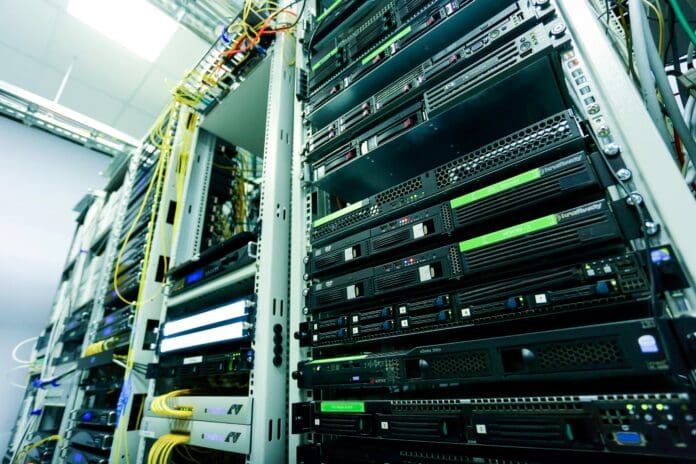This post is also available in:
 עברית (Hebrew)
עברית (Hebrew)
As artificial intelligence continues to grow in scale and complexity, so does its environmental footprint. The energy demands of training large AI models — from massive data centers filled with power-hungry servers — contribute significantly to global carbon emissions. But a new approach aims to flip that equation by turning these very servers into part of the climate solution.
A pilot project underway in the UK is testing a novel carbon capture system designed specifically for data center environments. The system, developed by startup Orbital Materials, uses waste heat from servers to power a direct air capture (DAC) process — a method of removing CO₂ from the atmosphere. What sets this effort apart is the use of a newly designed sorbent, a purple powder engineered using AI to operate efficiently at higher temperatures than conventional materials, according to Interesting Engineering.
Traditional DAC systems rely on cold air and struggle in the heat-intensive environment of server rooms. Orbital’s AI-designed molecule solves that by working in warm conditions, enabling on-site carbon removal without the need for extensive cooling or modification of existing infrastructure. The material is housed inside portable shipping containers, making the system scalable and easy to deploy across data centers.
The pilot, conducted in partnership with a Civo data center, aims to demonstrate that DAC can be both cost-effective and efficient. Initial estimates suggest a reduction in capture costs to about $200 per ton of CO₂, significantly below the $1,000 benchmark often associated with earlier carbon capture technologies.
Although still in its early stages, the initiative represents a broader movement toward integrating AI with climate technologies. Orbital’s use of machine learning to develop advanced materials could pave the way for more adaptable and location-specific solutions to industrial emissions.
While major cloud providers have acknowledged the carbon footprint of AI operations, few have implemented carbon removal systems at scale. Orbital’s pilot could serve as a proof of concept, highlighting how AI and data infrastructure might be reimagined not just as contributors to the climate crisis, but as active tools in addressing it.


























